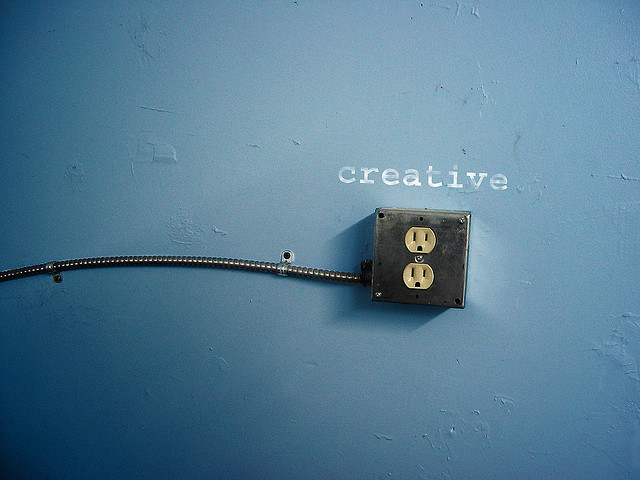I know so many people with amazing creative abilities.
I’m lucky to know people who can craft amazing objects, paint remarkable pictures, make evocative music and create fantastical, thought provoking, sometimes brutal, sometimes ethereal worlds with words.
Their gifts are, to me, truly remarkable.
But something about the situation saddens me and it’s this: Very few of them know the worth of the exceptional talents they have and the role or purpose they serve in society.
From an extremely early age, we’re taught to be productive. The definition of productive apparently means finding a role in life that proves lucrative financially, gives us more belongings to have possession over and ultimately somehow benefits the system in a way that produces some kind of material gain; both for the person working, but also (and more tellingly) for the bigwigs higher up.
From childhood, we’re exposed to games like Monopoly where the goal is to obtain as many properties and areas of land as possible to be the victor and somehow be better than others. Or The Game of Life, which encourages people to “buy a car, get married, have a baby.”
It starts when we’re young and it relentlessly picks at us throughout life. We live in a world where society only seems to recognise an achievement if there’s a reward in place, be it a piece of paper or financial.
One key point is missed with this thought process, however: how people escape the pressure to adhere to the guidelines to achieve instilled from childhood.
If people aren’t creative themselves, it’s likely they’ll use someone else’s creativity to seek refuge from life and the pressures that come with it. They’ll appreciate art, read a good book or use music to salve their hurt, anger, grief—in fact a whole range of emotions—and find an emotional balance.
Creativity is such an outstanding gift to have and it’s so often overlooked or disregarded. The creatives in the world are surrounded by a majority who strive to achieve material gain and, gradually, it becomes disheartening. Dreams of writing for a living are abandoned in favour of a more realistic and adult goal, potentially for two reasons. One, getting anywhere in a creative environment can be a long, difficult struggle and it can be pretty soul crushing. And two, the creative process is one that is ultimately quite personal. Rejection of that can be exceptionally damaging and disheartening.
But people with those talents really do need to cherish and nurture them. Because what it comes down to is this: without the creative people in the world, there’d be no escape from the materialistic vacuum we as a species have created for ourselves. There’d be so much less beauty and joy to distract people from day-to-day monotony: Thought-provoking musical pieces that allow us as a species to access our emotions in a way that only something like music can reach; Stories with characters so utterly fleshed out that we can identify with them or strive to emulate the strengths we admire in them.
To me, this is where the storytellers, musicians and artists fit in to society. To quote E.E. Cummings, they “build a heaven in hell’s despair.” And I, for one, am eternally grateful for them.
~
Author: Shonagh Staten
Editor: Caroline Beaton
Image: Flickr/mark sebastian







Read 0 comments and reply